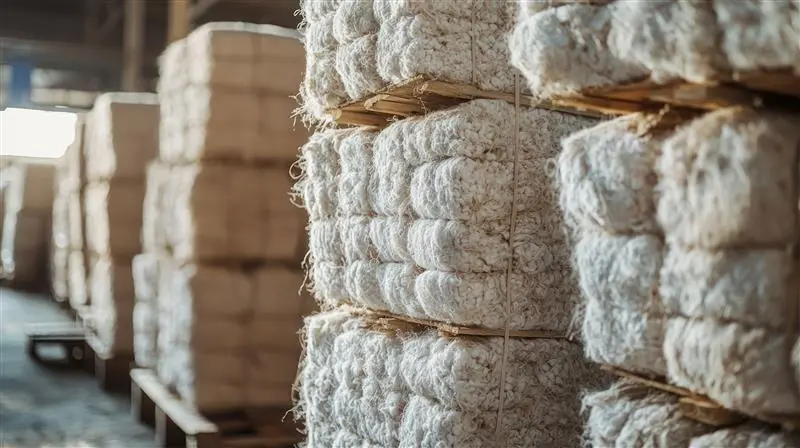Supply Chain Sustainability Report: Key Drivers and Insights from UBS
By Grant Cochrane | 27 March 2024
minutes to read.
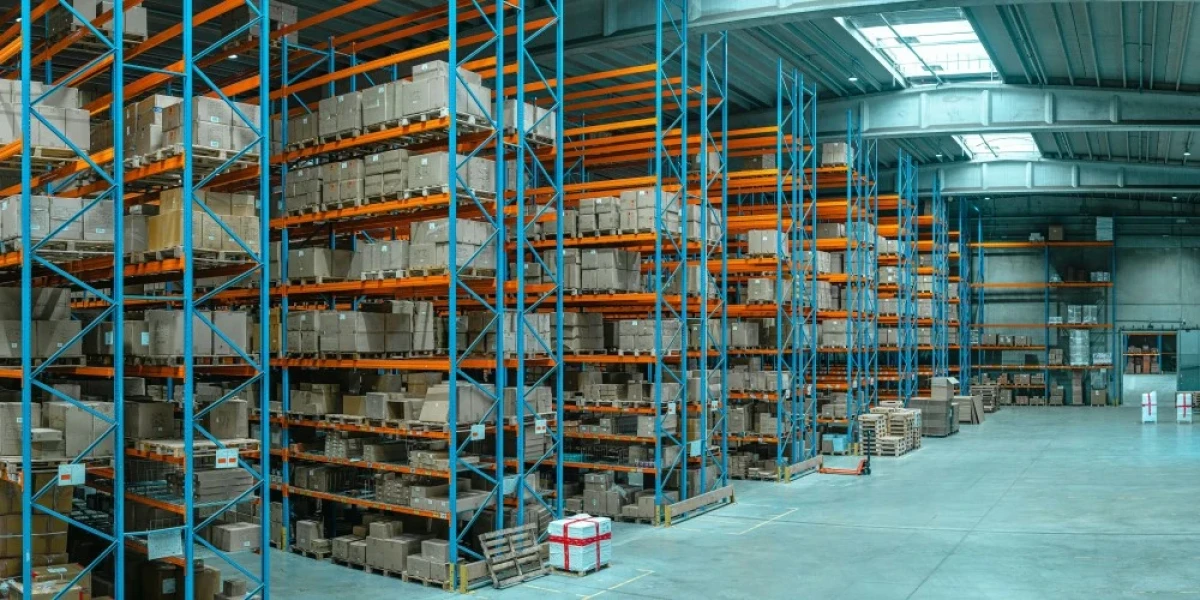
Supply chains are in the spotlight more than ever, as regulatory, market, and consumer demands impel businesses into a reappraisal of their processes.
The situation is captured and analyzed in a new report from the UBS Sustainability and Impact Institute. The 'Chain Reaction' report outlines the drivers behind supply chain change and proposes an approach to address these, but also highlights the tensions such change presents for companies and business leaders.
Product origin is a key aspect of sustainability, and Oritain was pleased to have the opportunity to contribute to this valuable report.
Let’s take a look at what the report says and what this means for product traceability.
UBS report: A new perspective on supply chain sustainability
‘Chain Reaction’ is a thought leadership report produced by the UBS Sustainability and Impact Institute, a collaborative of UBS’s business divisions founded in 2021 to foster positive dialogue around sustainability.
The report’s author, Richard Mylles, identified that the growing importance of sustainability must drive businesses to reassess and optimize their supply chains. In highly competitive, globalized marketplaces, this supports both reactive and proactive goals: meeting the requirements of a growing raft of regulations and strengthening the brand’s reputation to audiences.
Regulation is one of the catalysts for this, as the report notes, “Regulation is increasingly going to drive the need for greater transparency over supply chains from a compliance perspective.”
However, reconfiguring lengthy, often complex supply chains is no simple task. The investment in time, effort, and finances to achieve this can create friction in a business environment where margins can be tight.
To enable businesses to adapt their supply chains to conform to new sustainability requirements, the report proposes a four-pillar framework: Evaluate, Optimize, Collaborate, Develop.
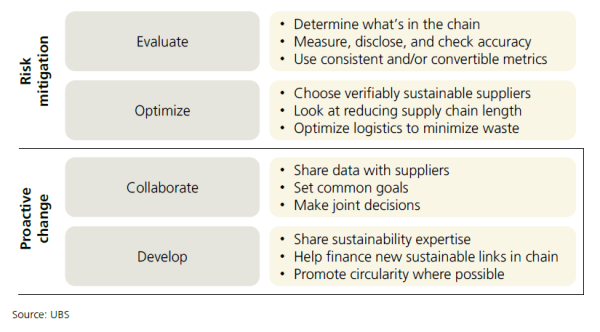
The value of this approach is that it recognizes the interconnectedness of all stages and players in the supply chain. A failure of any link represents a failure of the entire chain. But equally, strong governance and oversight around each link strengthens the links around it.
This is an important point and one which cuts to the core of what Oritain does. Efficient supply chains, which protect and enable successful business, are only possible when leaders have full visibility and transparency throughout.
As Oritain’s Strategic Regulatory Advisor, Ana Hinojosa, notes in the report, “Supply chain transparency starts with origin; you need to know a product’s source, before tracking and tracing each individual node or touchpoint throughout the supply chain.”
Among the points for action recommended by the report are increased transparency around regulatory requirements by policymakers and deployment of new technology and tools to enable business compliance. Traceability technology, like Oritain’s forensic science, is optimally placed to fulfill this need.
Download the full report free on the UBS website.
Key drivers of sustainable supply chain management
To achieve the “supply chain reset” the report recommends, business leaders need clear, compelling reasons why such action is necessary. From my experience in the industry, three key drivers stand out.
1. Risk management
Transparency provides a safeguard against product fraud and builds supply chain resilience. The ability to audit growers, manufacturers and other partners along the chain helps protect the brand against contamination – whether accidental or deliberate.
For example, product adulteration is a growing issue in the coffee industry. Studies have revealed the proportion of adulteration in coffee samples, where coffee is found to be mixed with undeclared plant materials such as chicory, coffee husks, cereals, malt, and corn, to be up to 30%.
Adulteration or substitution of products pose significant risks to businesses – both in reputational damage and threats to consumer health.
This is just one example of the risks and remedies for effective supply chain management.
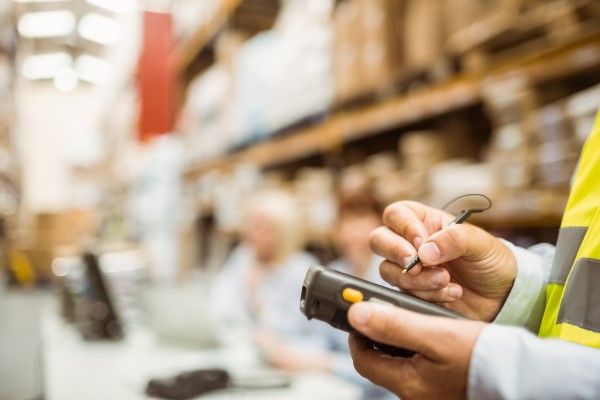
2. Regulatory compliance
We operate in an increasingly regulated environment, where the burden of compliance falls upon businesses and regulators are doubling down on enforcement. Leaders' focus must turn to EUDR compliance methods to protect their operations and reputation.
Key pieces of legislation like the Uyghur Forced Labor Prevention Act (UFLPA), the EU Deforestation Regulation (EUDR), and the EU’s Corporate Sustainability Reporting Directive require a 360-degree view of supply chains that traditional processes often cannot provide.
Oritain’s 2023 Cotton Market Insights data revealed that 75% of fashion brands analyzed had at least one garment containing cotton from high-risk regions known to be associated with forced and child labor.
3. Brand promotion
Evidence shows that sustainability is not only driving consumption but is also a predictor of future growth. More than 60% of consumers agree that sustainability is important in their purchasing decisions.
Now more than ever, brands are under pressure to source responsibly. Origin verification supports sustainable sourcing by identifying raw materials associated with practices like deforestation or forced labor, which empowers businesses to introduce changes to address these practices.
Products promoting ESG claims achieved increased market growth and sold for a significant premium over products without, according to research from McKinsey. Clearly, promoting and proving ESG credentials is good business, but must be underpinned by a robust, transparent supply chain.
What this means for business leaders
The biggest takeaway from this is that better supply chain management is essential – being able to trace your products and raw materials back to specific points of origin and stages of the supply chain. When companies are responsible for the environmental and social impacts of every operator in the chain, low traceability = high risk.
As the UBS report points out, this “requires businesses to make changes in both mindset and approach, along with the deployment of new systems, technology, and collaborations.”
While the short-term costs associated with change may be unwelcome to some business leaders, they’re ultimately insignificant when compared with the much greater financial and brand costs of non-compliance. That alone should make us all sit up and take notice.
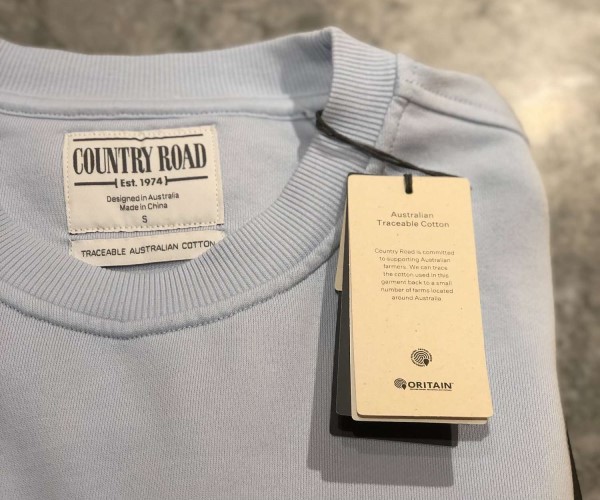
Traceability technology supporting sustainable supply chains
I’m a big believer that there’s no sustainability without traceability. How can you know that the products you’re buying, using, and consuming are truly sustainable if you don’t know where they came from? Being able to prove – through science – the origin of products and raw materials is essential to ensure they’ve been produced authentically, sustainably, and ethically.
At Oritain, we combine forensic isotopic testing and data science to analyze a product’s unique chemical fingerprint and pinpoint its origin with high precision. Scientific verification supports EUDR compliance for brands in leather, timber, coffee, cattle and other industries.
In addition, isotopic testing is a preferred traceability method for many regulators, including the US Customs and Border Protection (CBP).
Some companies are already leading the way in this by not only verifying the authenticity of their products but also passing this assurance onto customers. For example, fashion brand Country Road include the Oritain Trust Mark on their product labels to reassure consumers of the authenticity of their high-quality cotton.
Similarly, the premium Brazilian Nescafé Origens do Brasil coffee range includes the Oritain Trust Mark and a QR code linked to a webpage outlining the brand’s sustainability initiatives.
The UBS report is important reading for any business involved in product manufacture and sale. Forward-looking brands can use the insights to strengthen their business and position themselves for increased growth. Oritain can be a valuable partner to enable this.
To learn more about how Oritain helps organizations prove product origin, increase supply chain transparency, and improve sustainability performance, contact us to speak with one of our team.
Disclaimer: The information provided in this document does not and is not intended to constitute legal advice. Instead, all information presented here is for general informational purposes only. Counsel should be consulted with respect to any particular legal situation.




